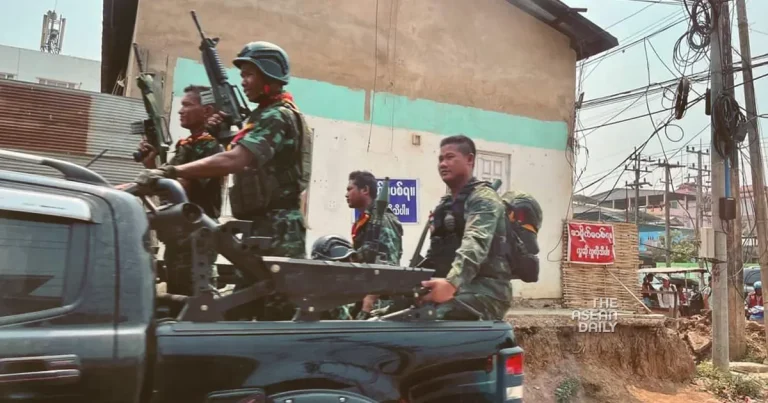21-7-2024 (YANGON) An alliance of armed groups operating in Myanmar’s northern Shan state has agreed to extend a ceasefire with the ruling military junta, following what is described as “pressure” from China. The ceasefire, which was initially set to expire on July 18th, has been extended until July 31st, according to a leader of one of the armed groups involved.
The decision to prolong the ceasefire comes in the wake of intense clashes that saw the alliance seize territory from the military along a strategic highway leading to China’s Yunnan province. The area has been a hotbed of conflict since late last month, when the Three Brotherhood Alliance, comprised of the Myanmar National Democratic Alliance Army and the Ta’ang National Liberation Army (TNLA), renewed its offensive against junta troops along the crucial trade route.
Speaking to AFP on the condition of anonymity, a leader from the TNLA revealed that the extension was a result of significant pressure exerted by China. “China put a lot of pressure on us to have a ceasefire immediately,” the leader said. “Therefore, we have to do it as we can’t avoid it.”
However, the TNLA leader issued a stern warning, stating that if junta troops launch offensives on the alliance’s forces or continue to bomb civilians during the ceasefire period, they would “attack back” in retaliation.
The initial four-day ceasefire, which was in effect from July 14th to July 18th, was agreed upon by two members of the Three Brotherhood Alliance – the Myanmar National Democratic Alliance Army and the TNLA. The third member, the Arakan Army, did not participate in the ceasefire agreement.
The ongoing conflict in Myanmar erupted after the military’s ousting of Aung San Suu Kyi’s democratically elected government in a coup in February 2021. The coup sparked renewed fighting between the military and various ethnic minority armed groups, as well as pro-democracy “People’s Defence Forces” that emerged in opposition to the military regime.
The recent clashes in Shan state shattered a previous Beijing-brokered truce that had halted an earlier push by the three armed groups in January. Notably, the new ceasefire agreement does not cover the neighboring Mandalay region, where members of the alliance and other opponents of the military have been engaged in fierce battles with junta troops in recent weeks.
China, a major ally and arms supplier to the Myanmar junta, is known to maintain ties with various armed ethnic groups operating along its border with Myanmar. Analysts suggest that Beijing’s involvement in brokering ceasefires and maintaining relationships with these groups is driven by its desire to secure its strategic interests and maintain stability in the region.




